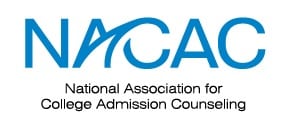Studying foreign languages and linguistics opens doors to many careers worldwide. For students passionate about language, culture, and communication, this field offers numerous opportunities for academic exploration and professional growth. This article delves into the educational pathways and career prospects within foreign languages and linguistics, highlighting what kinds of students may find it a good fit and how educational programs in this field are structured.
Why Study Foreign Languages and Linguistics?
Foreign languages and linguistics encompass the study of language structure, history, and use and the acquisition of proficiency in one or more foreign languages. This field is ideal for students who:
- Have a Passion for Languages: Students who enjoy learning new languages and are fascinated by the nuances of communication will find this field deeply rewarding.
- Are Culturally Curious: Those who are keen on different cultures, traditions, and global perspectives will appreciate the cultural immersion that comes with studying foreign languages.
- Enjoy Analytical Thinking: Linguistics, in particular, requires a solid ability to analyze language patterns, understand phonetics, syntax, and semantics, and apply theoretical knowledge to practical problems.
- Seek Versatile Career Opportunities: Proficiency in foreign languages and a deep understanding of linguistics can lead to careers in education, translation, international business, diplomacy, and more.
Educational Programs in Foreign Languages and Linguistics
Educational programs in foreign languages and linguistics vary widely, offering students the flexibility to tailor their studies to their interests and career goals. These programs are available at the undergraduate and graduate levels, each with its own set of requirements and focus areas.
Undergraduate Programs
Undergraduate programs typically lead to a Bachelor of Arts (BA) in Foreign Languages, Linguistics, or a combination of both. Here’s what students can expect:
- Core Curriculum: Students usually begin with foundational courses in linguistics and introductory courses in one or more foreign languages. Core subjects may include phonetics, phonology, syntax, and sociolinguistics.
- Language Proficiency: In addition to theoretical knowledge, students focus on achieving fluency in their chosen languages through intensive language courses, conversation practice, and study abroad programs.
- Electives and Specializations: Many programs offer electives in areas such as translation, interpretation, language teaching, and cultural studies, allowing students to specialize based on their interests.
- Capstone Projects: Undergraduate programs often culminate in a capstone project or thesis, where students research a topic of their choice, applying their linguistic skills and cultural knowledge.
Graduate Programs
Graduate programs in foreign languages and linguistics provide advanced training and specialization. These programs include Master’s and Doctoral degrees, focusing on both academic research and practical applications.
- Master’s Programs: Typically, a Master’s in Linguistics or Foreign Languages takes two years to complete. Students engage in advanced coursework, participate in research projects, and may have the opportunity to teach undergraduate courses. Specializations can include computational linguistics, applied linguistics, or a specific language or language family.
- Doctoral Programs: Ph.D. programs are research-intensive and designed for students pursuing academic or high-level professional careers. These programs involve original research, comprehensive exams, and the completion of a dissertation. Ph.D. candidates often work closely with faculty mentors and may publish their findings in academic journals.
- Certificates and Professional Programs: Some institutions offer certificate programs or professional training in areas such as translation, interpretation, language education, and language policy, catering to those looking to enhance specific skills.
Career Paths and Potential Earnings
A degree in foreign languages and linguistics can lead to various career paths, each with its opportunities and potential earnings. Here are some common careers for graduates in this field:
Translator and Interpreter
- Role: Translators convert written text from one language to another, while interpreters translate spoken language in real time.
- Earnings: According to the U.S. Bureau of Labor Statistics (BLS), the median annual wage for interpreters and translators was $52,330 in 2020. Highly skilled professionals can earn significantly more, especially those fluent in in-demand languages.
Language Teacher
- Role: Language teachers work at various educational levels, from elementary schools to universities, teaching foreign languages and linguistics.
- Earnings: According to the BLS, the median annual salary for postsecondary foreign language and literature teachers was $80,790 in 2020. Salaries for K-12 language teachers vary by region and level of experience.
Linguist
- Role: Linguists study the structure, development, and variations of language. They may work in academia, conducting research and teaching, or in applied fields such as language technology and forensics.
- Earnings: Salaries for linguists can vary widely. Academic positions typically offer salaries ranging from $60,000 to $120,000, depending on rank and institution. Applied linguists in technology or government roles may earn more.
Foreign Service Officer
- Role: Foreign Service Officers work for the government, typically in embassies or consulates abroad, representing their country and working on diplomatic missions.
- Earnings: Salaries for Foreign Service Officers vary based on rank and location. However, entry-level officers can expect to earn between $50,000 and $70,000 annually, with the potential for significant increases with experience and advancement.
International Business Consultant
- Role: These consultants help companies navigate international markets, often leveraging their language skills and cultural knowledge to facilitate business operations and negotiations.
- Earnings: Salaries for international business consultants can vary greatly. The median annual earnings are around $85,000, but highly experienced consultants can earn six-figure incomes.
Computational Linguist
- Role: Computational linguists work at the intersection of language and technology, developing algorithms and software for applications such as speech recognition, machine translation, and natural language processing.
- Earnings: According to the Association for Computational Linguistics, salaries for computational linguists can range from $90,000 to $150,000 or more, depending on the level of expertise and the industry.
Cultural Advisor
- Role: Cultural advisors work with government agencies, corporations, or non-profits to provide insights into cultural practices and language nuances affecting international relations and business.
- Earnings: Salaries for cultural advisors can vary, but they typically range from $50,000 to $100,000, depending on the employer and the advisor’s level of expertise.
Conclusion
The foreign languages and linguistics field offers a wealth of opportunities for students passionate about language, culture, and communication. From undergraduate programs that lay the foundation for language proficiency and linguistic analysis to advanced graduate studies that delve into specialized research, educational pathways in this field are diverse and flexible. Careers in this field are equally varied, with roles in education, translation, international business, and technology.
Students curious about the world, enjoy analytical thinking, and are committed to mastering new languages will find this field a fulfilling and intellectually stimulating choice. As the world becomes increasingly interconnected, the skills and knowledge gained from studying foreign languages and linguistics are more valuable.
Specific Majors in This Category
To find colleges that offer these majors and search by over 35 other criteria, use LifeLaunchr's College Match.




